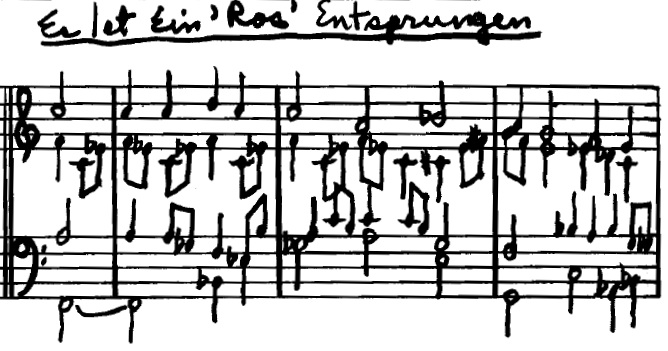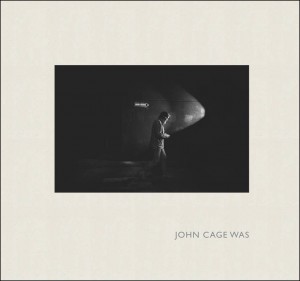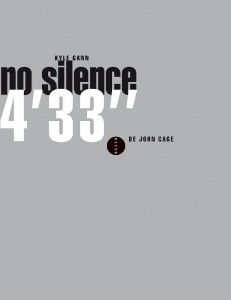I was recently at a reception where I found myself among three other authors who had written admirable, major books on American music. Every one of them said he or she was thinking about putting their next book on the internet, specifically to avoid the peer-review process. I empathized completely. I’m going through it now with my Concord Sonata book, and I’m committed to it one more time, for my Arithmetic of Listening book with U. of Illinois Press, and, because microtonalists are so argumentative, I’m already dreading that ordeal. It’s mission creep: peer review is supposed, one assumes, to prevent the publication of misinformation, to verify that an author knows what he’s talking about, but anonymous readers take the opportunity to tell you how they would have written the book and push you towards conformity with their opinions. “I can’t recommend publishing this book until the author rewrites it to agree with my views!†And it’s insidious: a phalanx of scholars who have decided that a certain reading of the facts is the only legitimate one can prevent a writer who disagrees from being published; enough like-minded book reviewers can succeed, for a time, in stifling dissent. Peer review’s effect is to discourage all would-be writers except for the most sycophantically conformist. I find that just mentioning peer review is often enough to make a colleague’s face wrinkle in disgust.
So far, I have only been a reviewer in the cases of young, inexperienced scholars on their first book. They tend to make typical mistakes. The ambitious young scholar (the male especially) is eager to show off how smart he is, yet paradoxically convinced that his readers have read all the same up-to-date books and articles he has, and so he makes confoundingly elliptical reference to abstruse concepts and obscure writers that haven’t yet entered public currency. That was exactly me, at age 29. And my role as reader has been mostly to say, “You seem to know your business, but I have no idea what you’re talking about, and since I don’t want to read all those other books before I can read yours, will you please unpack your references and provide some context?†I tell them what I can’t understand as a reader, but I would never presume to tell them how to write the book, nor what opinions to express. But then, this isn’t really peer review, because I’m an old, experienced writer looking at a first-timer. And I insist that when scholars who have published less than I have are reviewing my work, that’s not really peer review either, but the less experienced taking potshots at the more experienced. I think by the time you’re on your fifth or sixth book and still in good academic standing, publishers should pay you the compliment of skipping the process.
I really shouldn’t complain about the readers’ reviews for my Concord Sonata book, because they were broadly complimentary and willing to attest that the path I had taken was both sound and original, and for once they didn’t even cavil about my colloquial writing style. (Perhaps my blog harangues are having some effect.) But their stern admonition du jour is that my writing shows “insufficient engagement with work in the field.†I’ve been studying the Concord since 1969, and 99 percent of what I have to say about it I learned on my own, but apparently if I mention a chord on page 17, and another author mentioned the same chord in a book written in 1994, I’m expected to preface my remark with, “As Professor X has aptly pointed out….†– lest the reader think I am arrogant enough to speak on my own authority, or – saints preserve us! – that I must not have read Professor X’s book!
Let me say at once that I quote many, many Ives scholars in the book, to an extent that guiltily felt, to me, like I would be perceived as going overboard to flatter my colleagues. I usually write books about topics that hardly anyone else has written about, but I knew what would be expected of me in this well-traveled terrain and gamely tried to comply. And yet, apparently, I should have done ten times more in this regard. I was directed toward an exemplary journal article, which I read, and saw what my reader meant: every paragraph contained quotations from other writers, strings of such quotations in series, a veritable quodlibet of borrowed scholarship, written in the apparent conviction that the juxtaposition of these familiar gems from the Ivesian literature would add up to some new and revealing picture. But since I had already read every book and article quoted, the essay gave me no new information, just the ersatz glow of a trip down memory lane. What would conceivably compel a scholar to collect so many sentences from other writers to bundle up in new packages? Outside of an upcoming tenure review, I can’t imagine. Can’t a person stand up in public and speak his or her own mind? I’m curious to know what the writer thinks.
A quotation is an ornament to a piece of writing when the quoted phrase is so striking and memorable that the author couldn’t have come up with anything as evocative himself. But if I can state an idea clearly (and little academic writing is as readable as mine), why would it carry more authority if put into a sentence I stole from another writer? If what I say is false, and its falsity has been demonstrated in a previous publication, then I should be told to do my homework. But if what I say is demonstrably true, what does it matter whether someone else has said it before? We are not medieval monks, that we fear to record the fact in front of us unless we can find a citation for it in Aristotle.
The hard truth, which perhaps they suspect, is that I sometimes ignore a book or article because I find it wrongheaded and uninsightful. (Perhaps the reviewer even wrote one of those books.) I have no reason to create new enemies by criticizing the argument of some journal article that my reader may not have read. If my argument diverges from Professor X’s, the reader can judge which is more convincing without my trying to downgrade Professor X. Part of my reason for writing the book, as I detail in the preface and footnotes but try not to bore the reader with, was my strong dissatisfaction with tendencies in recent Ives scholarship, and it was my gentlemanly strategy to set a superior example rather than engage others in intellectual combat; I was a critic for decades, and I’m tired of arguing. Books I read and disagreed with are listed in the bibliography along with the rest. If you decide to assume that because I didn’t refer to one I must not have read it, so what? And then, I don’t always disagree with everything I don’t quote. Occasionally I will say to myself, “Well, that’s a clever insight, but I didn’t come up with it, and there’s no need for me to partly obviate the reason for reading her book by reprinting its best idea elsewhere.†Sometimes an author is right, but his sentences are too clogged with jargon to be of use to me. I’m really good at analyzing music, and I read hardly anything analytical about the Concord that I hadn’t already figured out myself: if I had the insight independently, why quote someone else?
Is it not obvious how vanity-driven all this is? A friend of mine in the philosophy department says that to get published young philosophers have to quote articles by the editors of the journal they’re trying to get into; this is not intellectual discourse, but a petty brand of payola. Is the scholar’s life really so meager of reward that we have to ostracize the writer who fails to scatter enough crumbs of citation for his fellows on every page? Do we let external readers blackmail authors into mentioning their books? I will confess, when I see a new book on American music, to sometimes looking first in the index to see how often I’m cited, but I don’t think we should warp the discourse by catering to this; the absence of my name stings for a second, and then I forget about it. About a year ago I read an article that quoted me so many times that I felt rather more plagiarized than flattered, and wondered why the author couldn’t have come up with his own ideas. A wise and mature person will not take offense every time a subject he’s written about is written about again without paying him obeisance.
I did not write a book to flatter my colleagues, but to give a truer picture of the Concord Sonata than has been given before. I am already ashamed of the extent to which I went obsequiously fishing for quotations beyond the ones that leapt to mind as felicitous. Like Thoreau, I’m always regretting my good behavior. If we’re stuck with the peer-review process, as we seem to be for now, we could all contribute to making it a cleaner, more honest experience. It should not be an opportunity for getting ego strokes at the author’s expense and settling professional grievances. The author of five books does not need to be told how to write a sixth. Is the logic clear? Are the statements arguably true? All else is vanity.

![Violette-Andrew-05[Barbara-Nitke]](http://www.artsjournal.com/postclassic/wp/wp-content/uploads/2014/11/Violette-Andrew-05Barbara-Nitke-300x198.jpg)


